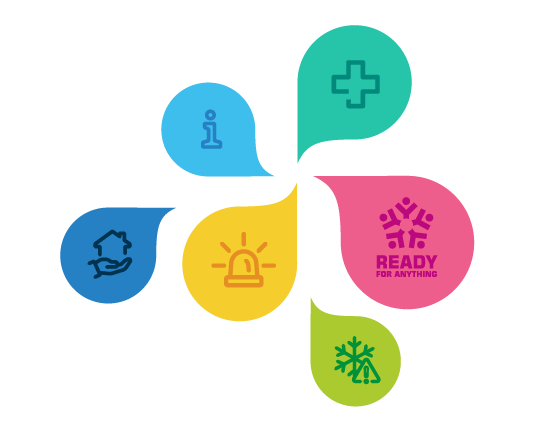Business Continuity Storymap
If a cyber attack/flood/fire hit your business tomorrow, would it survive?
Discover this storymap to understand how plans can be followed in the event of something affecting the normal running of your business like flooding, cyber attacks, loss of power or other utilities, loss of business premises or a combination of one or more.
Review your critical functions. Critical functions are those parts of the business that must be kept running, whether that's due to legal/statutory reasons, reputational risk or is the main income stream, the loss of which could severely impact the survival of your business.
Prepare, respond and recover
Local Resilience Forums are activated to assist in responding to large-scale emergencies when a combined multi-agency coordination would result in a more effective and efficient outcome. Any one of the partner agencies can also activate the LRF when there is a requirement for more capacity beyond their own resources.
Emergency situations that may require action from an LRF include severe weather events, coastal or inland flooding, acts of terrorism or other sudden dangerous situations which seriously threaten people’s welfare, the environment or our security.
Local Resilience Forums develop, implement and coordinate multi-agency responses and action plans focussed on;
- Saving lives
- Relieving suffering
- Protecting property
- Preventing further damage to the environment
- Preventing the impacts of a disaster getting worse
- Restoring normality as quickly as possible
The close collaboration of LRF partners is not limited to responding to emergencies, and dealing with the aftermath, it also includes a continuous programme of behind the scenes activity in planning, preparation and development of response strategies for potential emergency risks in the county.
LRF partners work together to ensure that the necessary plans are in place and regularly test and prove the plans to ensure that every organisation is able to respond as quickly and effectively as possible as part of the wider LRF collective response.
LRF activities continually improve the ability of institutions and communities to work together to prevent, deal with, recover and learn and adapt from the disruption to enable positive change.
- Connecting organisations, communities and individuals to help protect the future prosperity of the region in relation to the risks it faces.
- Providing a joined up approach across partnership organisations to address issues of resilience.
- Ensuring the most effective use of the partnerships’ combined resources.
- Assessing local risks and their associated impacts.
- Collectively developing capabilities to offer the best possible outcomes in an emergency.
- Communicating the local risks, so people are aware of them and understand what they can do individually, or as part of their business or community to prepare for them.
- Prepare for and address the chronic (long-term) stresses likely to impact Lincolnshire in the future.

Stay informed
Lincolnshire Resilience Forum aims to inform families, communities and businesses on how they can prepare themselves for large-scale, major emergencies in Lincolnshire.
Continually developing
Lincolnshire’s resilience
LRF partners share responsibility to continually develop Lincolnshire’s resilience in the face of large-scale emergency situations, with guidance and support from lead government departments and agencies, local authorities, emergency services, health, utilities providers, communication providers and transport companies.